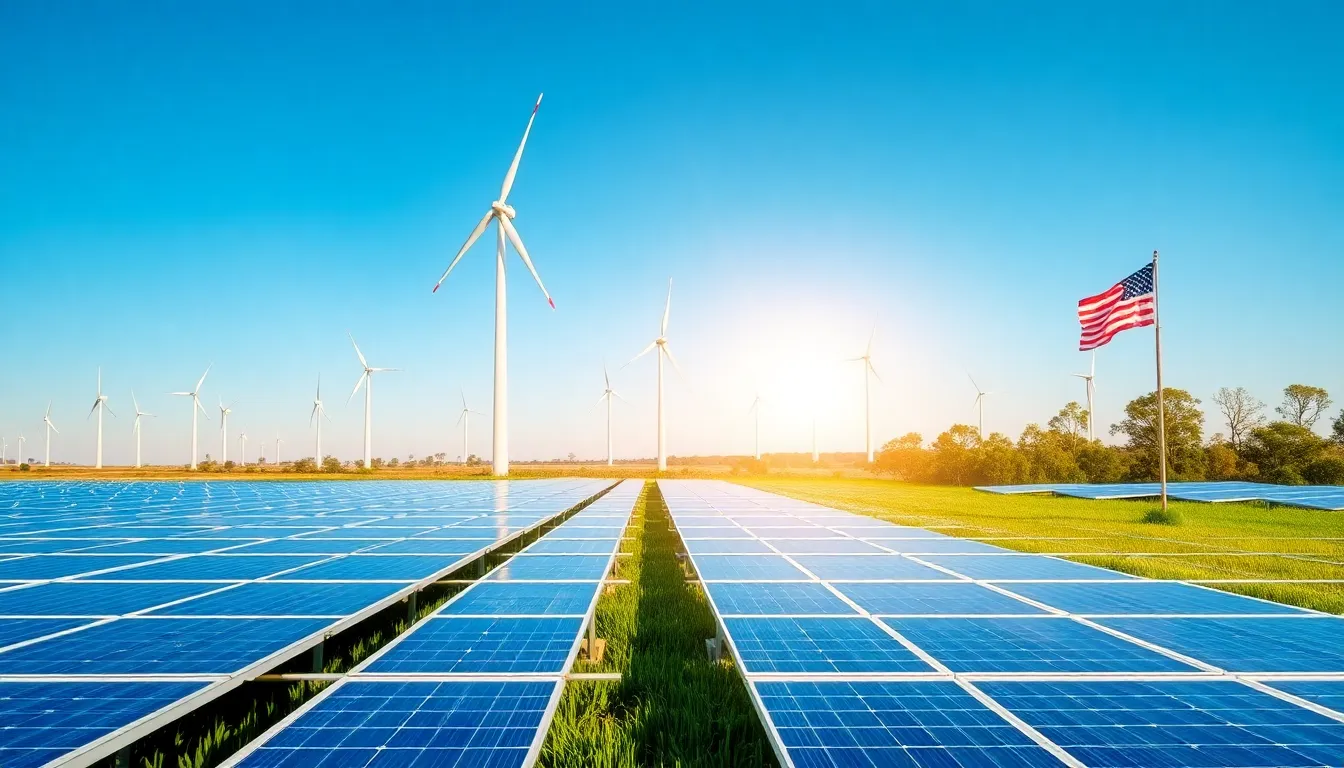In an era where the energy landscape is rapidly evolving, updates about new energy production methods, international agreements, and the socio-economic implications of various energy sources are essential. This article delves into recent trends in energy production, the impact of fossil fuels, international agreements shaping the energy sector, and the pivotal role of electrification in global development. Understanding these components will provide insights into how nations are responding to the pressing demands of climate change while pursuing energy independence.
Table of Contents
ToggleRecent Global Trends in Energy Production

Renewable Energy Sources Revolutionizing Power Generation
The shift towards renewable energy sources has been nothing short of revolutionary in recent years. Wind, solar, and hydroelectric power are not only gaining respect as serious contenders in the energy market but are also becoming increasingly cost-competitive. According to the International Energy Agency (IEA), renewables accounted for almost 80% of new electricity generation worldwide in 2022. Countries like Germany and Denmark have made significant strides in harnessing wind energy, setting benchmarks for sustainable energy practices globally. This trend indicates a growing consensus that transitioning to renewables is not just environmentally necessary but economically advantageous.
The Shift Towards Nuclear Energy Adoption
While renewable energy is gaining momentum, nuclear power is also witnessing a resurgence as nations seek reliable and low-carbon energy sources. Countries such as France and China are ramping up their nuclear programs, recognizing nuclear energy’s potential to provide a stable power supply while significantly reducing greenhouse gas emissions. Innovations in nuclear technology, like small modular reactors (SMRs), offer the promise of safer and more efficient energy production, driving renewed interest in nuclear investment across the globe.
Impact of Fossil Fuels on Global Economies
Government Policies Affecting Energy Markets
Fossil fuels have long been the backbone of global economies, providing energy for industries and transportation. But, the increasing focus on sustainability has led to significant policy changes in many countries aimed at reducing fossil fuel dependence. The implementation of carbon pricing, subsidies for renewable energy, and stringent emissions regulations are reshaping the dynamics of energy markets. As governments incentivize greener alternatives, the fossil fuel industry faces uncertainty about its future profitability. The International Monetary Fund (IMF) estimates that the phasing out of fossil fuel subsidies could generate significant revenue for governments while further mitigating climate change.
International Agreements and Their Implications
Technological Innovations Shaping the Future of Energy
International agreements play a pivotal role in shaping the future of global energy production. The Paris Agreement, for instance, has sparked a wave of commitments from countries hoping to limit global warming to 1.5 degrees Celsius. These commitments compel nations to invest in research and development of clean energy technologies. Besides, innovations in smart grids, energy efficiency systems, and carbon capture technologies are being prioritized to help meet these ambitious climate targets. By enhancing cooperation in research and development, countries can share best practices and drive down the costs associated with emerging energy technologies.
Emerging Trends in Energy Storage Solutions
As renewable energy sources like wind and solar power become more integrated into national grids, the importance of efficient energy storage solutions cannot be overstated. Advanced battery technologies, including lithium-ion and solid-state batteries, are emerging as essential components for stabilizing power supplies. These innovations not only enhance the reliability of renewable energy but also underscore the necessity for investment in energy infrastructure. International collaborations are vital to ensure these energy storage technologies can be produced at scale and deployed effectively across diverse environments.
The Role of Electrification in Global Development
Challenges and Opportunities in the Energy Sector
Electrification is increasingly recognized as a crucial driver of global development, particularly in underdeveloped and developing nations. Access to electricity can stimulate economic growth, improve educational opportunities, and enhance overall quality of life. Nevertheless, significant challenges remain, including the need for substantial investment in infrastructure and the establishment of stable energy grids. As global populations grow, the pressure on energy resources intensifies, creating an urgent need for sustainable solutions.
Plus to infrastructural challenges, the integration of renewables into existing energy systems poses technical and regulatory hurdles. But, these challenges present opportunities for innovation, collaboration, and investment, which can pave the way for a more sustainable energy future. Countries that embrace electrification can lead the charge in creating resilient economies while reducing their carbon footprint.
Conclusion
The landscape of global energy production is transforming at an unprecedented pace. With the shift towards renewable energy sources and the resurgence of nuclear energy, the importance of international collaboration cannot be underestimated. Governments around the world are revising policies that affect fossil fuel markets, paving the way for cleaner energy alternatives. As countries commit to sustainable practices through international agreements, technological innovations and improved energy storage solutions will be critical in navigating future challenges. Eventually, electrification presents both challenges and opportunities that could redefine global development. The continued pursuit of sustainable energy practices will not only mitigate climate change but also foster economic growth and improve societal well-being.








